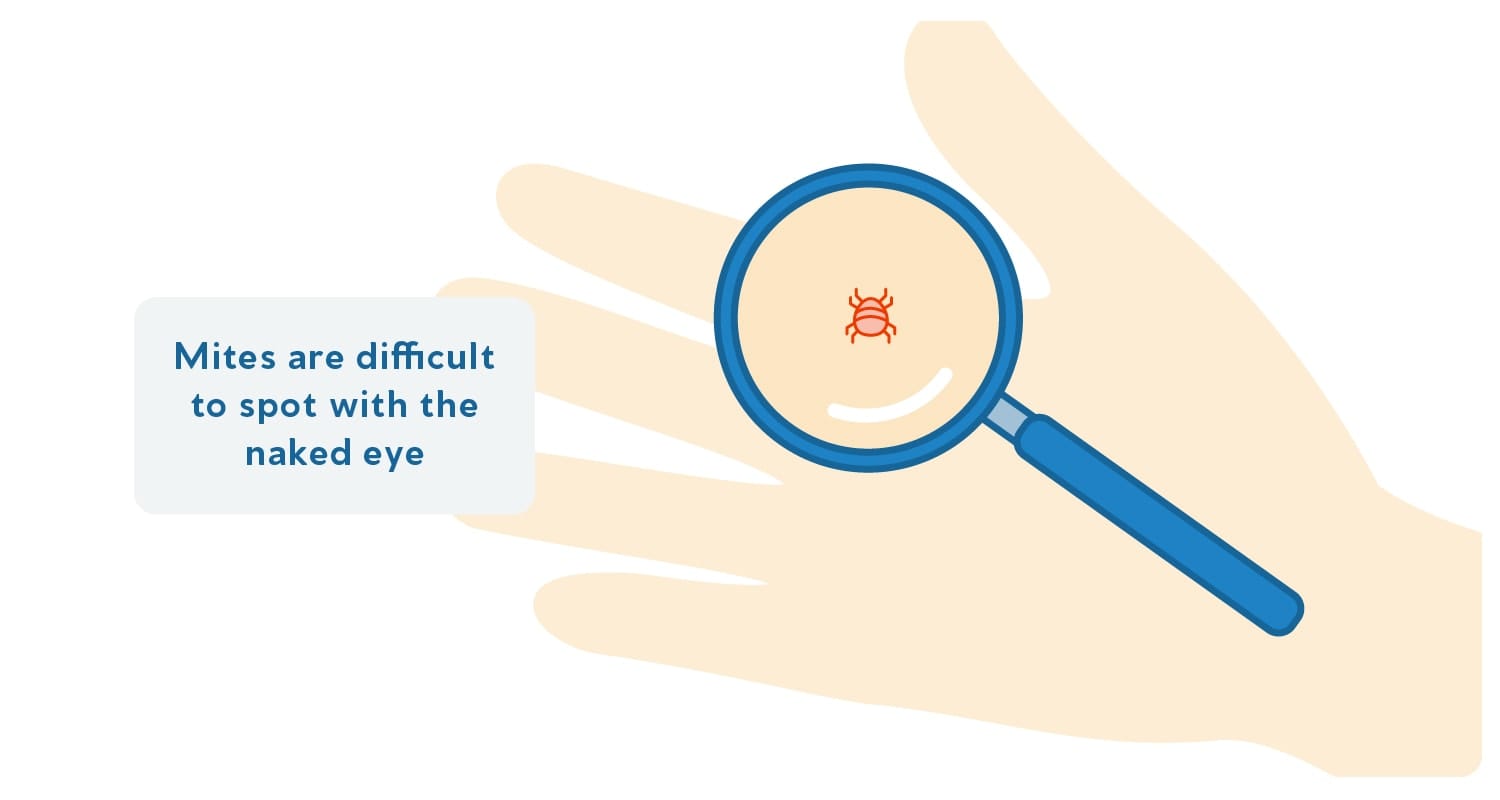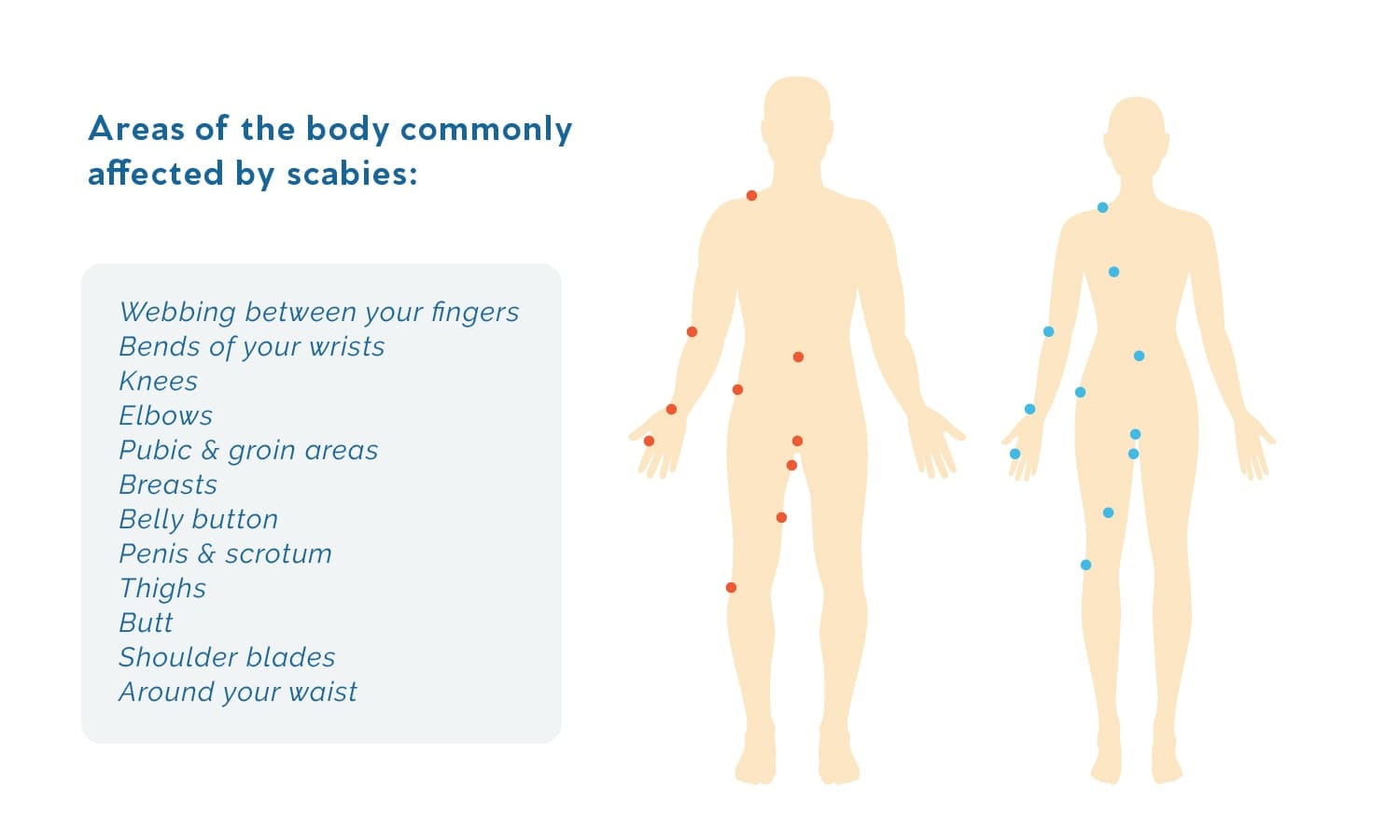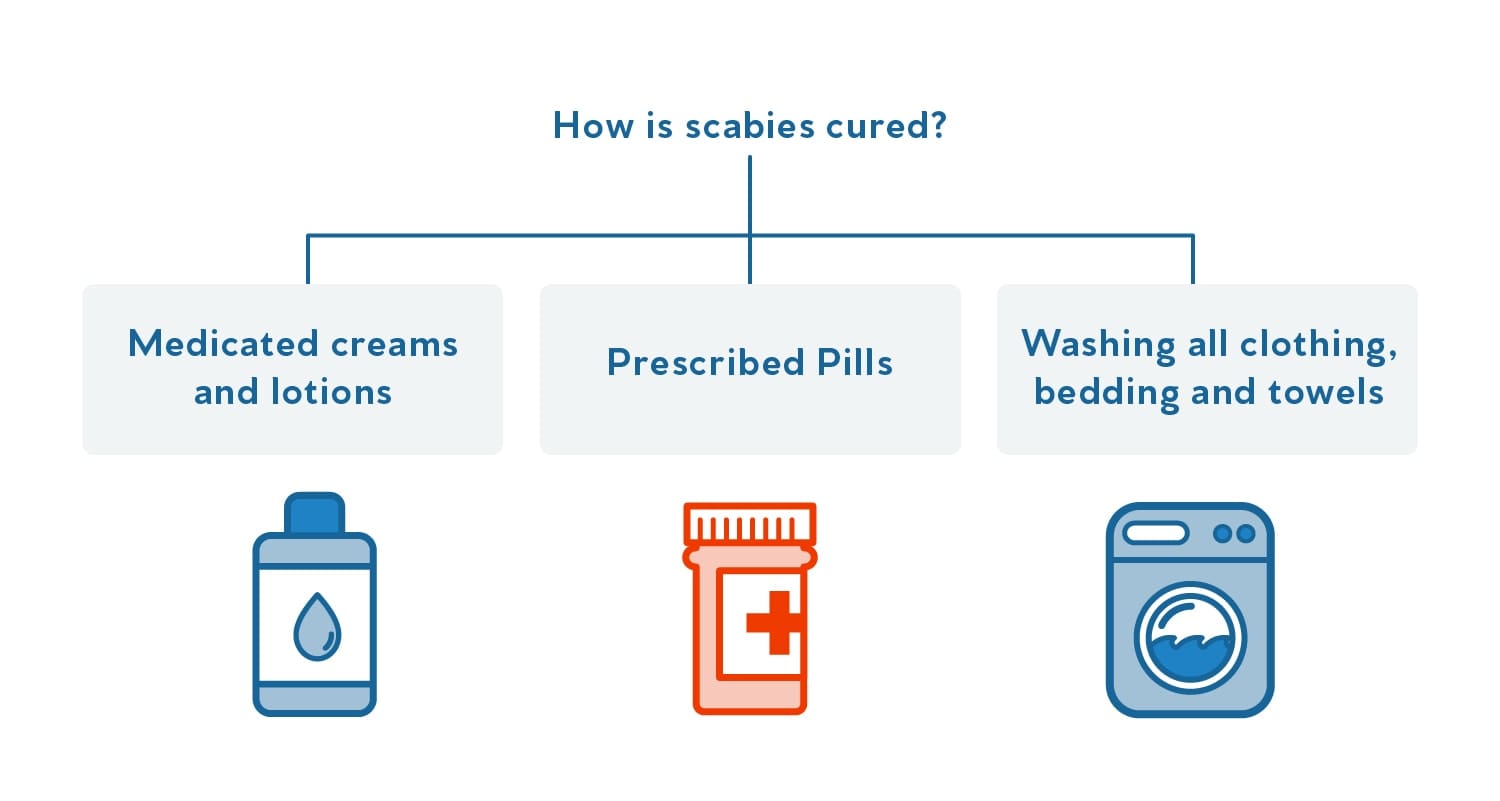Is scabies an STD? In short, no. This contagious skin condition is most commonly passed through non-sexual skin-to-skin contact. However, it can technically be considered a sexually transmitted disease or infection because it is commonly spread through sexual and other intimate contact.
What is scabies?
Scabies is a highly contagious skin condition that is common worldwide. It’s estimated that 300 million cases occur throughout the world each year. Scabies is caused by tiny insect-like parasites, called scabies mites. These parasites infect the top layer of your skin, causing irritation, rashes and itchy skin. Scabies mites burrow into the top layer of your skin and lay eggs, which more mites hatch out of. The mites are very small, so they can be difficult to spot with the naked eye.
Scabies can be uncomfortable, but it’s usually not dangerous and can be cured with medications. Usually, scabies is treated with either pills or medicated creams or lotions that kill the mites and eggs. Treatment is available by prescription only, so you’ll have to see a doctor to be diagnosed and prescribed treatment.
What are the symptoms of scabies?
Scabies most commonly causes symptoms related to irritation from the mites. These symptoms include an itching sensation that is often worse at night and rashes that have pimple-like bumps, tiny blisters or scales. You might also notice small, raised, crooked lines on your skin caused by the scabies mites as they burrow under the surface of your skin.
Scabies symptoms typically arise 3-6 weeks after you’ve been infected for the first time. If you’ve had scabies before and get infected again, symptoms can begin within a few days.
Areas of the body that are commonly affected by a scabies infection include the webbing between your fingers; the bends of your wrists, knees or elbows; the pubic and groin areas; breasts; belly button; penis and scrotum; thighs and butt; shoulder blades and around your waist. Symptoms can sometimes come and go, but the only way to cure the infection is to get treatment. You can still spread scabies to other people even if you’re not currently experiencing symptoms. Furthermore, symptoms of scabies can sometimes mimic those of the herpes simplex virus, so getting herpes testing is advised to rule out any other potential infection.
How do you contract scabies?
Scabies is spread through direct skin-to-skin contact. Obviously, skin-to-skin contact occurs in most sexual situations, meaning scabies can easily be transmitted through sexual acts. However, scabies is not exclusively transmitted in sexual contexts, like a few other STDs. You can easily spread scabies to or contract it from someone else in your home, and it’s a common infection in crowded places where people may have lots of close skin-to-skin contact or where large groups of people are gathered together, such as in nursing homes, hospitals, classrooms, daycares, dorms, locker rooms and prisons. Though it is less common, it is possible to contract scabies from sharing clothes, towels or bedding with an infected person. For sexually active adults, sexual contact is the most common form of transmission.
Scabies is more frequently spread through sustained skin-to-skin contact, so it’s unlikely that you’d contract scabies from quick skin contact, like brushing up against someone, shaking someone’s hand or giving someone a hug. You also can’t get scabies from a toilet seat.
How do I know if I have scabies?
If you’re experiencing symptoms of scabies, the only way to know the cause of those symptoms for sure is to get checked out by a doctor or nurse. If you’re exhibiting symptoms of scabies or recently were in close contact with someone who has scabies, you should get tested. Because scabies is easily cured, there’s no reason to prolong any irritation. Scabies will not go away on its own. If you’re experiencing symptoms, you should see a doctor as soon as possible.
How is scabies treated?
If you are diagnosed with scabies, your doctor should prescribe treatment. Treatment can be in the form of pills or medicated creams and lotions. You can also use over-the-counter treatments to reduce the severity of your symptoms, including anti-itch creams and lotions, but these treatments will not cure scabies. You should consult your doctor before using any additional medications.
It’s also important while undergoing treatment to wash any clothing, bedding and towels you used while having scabies. It’s also a good idea to vacuum carpets and furniture.
While being treated for scabies, you should avoid any activity that could cause a partner, loved one, roommate, or anyone else in close contact with you, to contract scabies. Avoid sexual intercourse and other kinds of intimate contact until you’re cured.
After treating scabies, it’s normal to still be itchy for a few weeks afterward. However, if the itching lasts longer than that or other symptoms resurface, you should see a doctor, because you may need to undergo treatment again.
How can I prevent contracting scabies?
Unfortunately, condoms, dental dams or other physical barriers won’t reduce your risk of contracting scabies like they do for other STDs. The only preventative measure that will protect you from contracting scabies is to avoid intimate contact with anyone who has scabies. You should also avoid sharing clothing, bedding, or towels with anyone infected or undergoing treatment.




